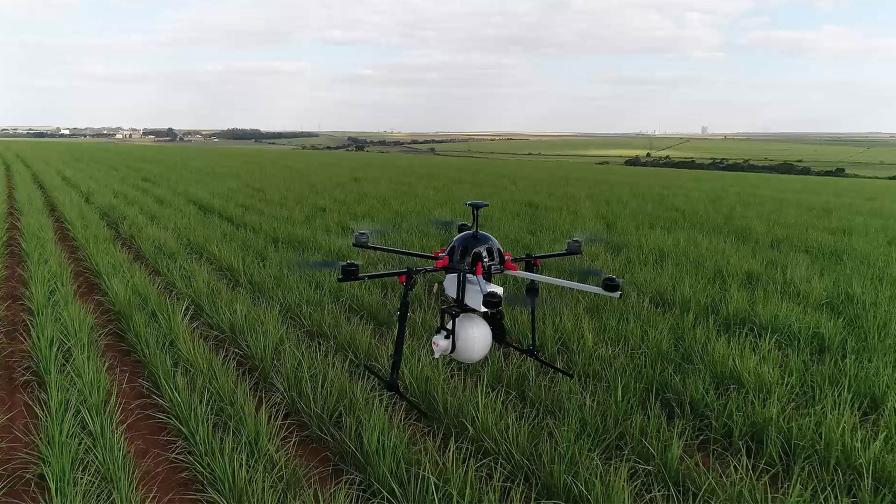Bayer, FuturaGene Partner on Drought-Tolerant Cotton
MONHEIM, Germany — CropScience and FuturaGene PLC, London, have entered into a license agreement for a drought tolerance technology. The agreement grants Bayer CropScience exclusive worldwide rights to utilize a FuturaGene drought tolerance technology in cotton. FuturaGene will receive an upfront license fee, followed by development milestone payments and trait royalties on sales of cotton seeds incorporating this technology. Further financial details were not disclosed.
The technology licensed to Bayer is intended to protect the yield of cotton plants when they are subjected to drought. Drought is one of the principal environmental limits of crop yield as it hampers the cultivation of crops on more than 40 percent of the earth’s land surface, posing a serious threat to global agricultural production and food supplies.
“We’re pleased to be working with FuturaGene as a partner in developing next generation drought tolerance in cotton,” Dr. Linda Trolinder, Global Cotton R&D Manager in the BioScience business group of Bayer CropScience, said in a press release. “Their technology fits well with our strategy to explore multiple approaches to drought tolerance in order to bring the most effective, high-performance trait solutions to market to help farmers tackle this global challenge.”
Dr. Stanley Hirsch, CEO at FuturaGene, added: “Combining our drought tolerance technology with Bayer’s development and marketing capabilities creates a huge benefit for both companies as well as to farmers. This important agreement fits precisely with our development strategy – to focus on poplar and eucalyptus for the paper and pulp and biomass markets whilst licensing our leading gene technologies to global operators for other crops.”
In other Bayer news, Bayer CropScience and the International Rice Research Institute (IRRI), Los Baños, Philippines, have signed an agreement to establish a Scientific Know-how and Exchange Program (SKEP). The main goal of the collaboration is to strengthen rice productivity through improved utilization of rice genetic diversity for crop improvement, disease management in rice, reducing greenhouse gas emissions, and capacity building for young rice scientists.
The agreement will allow both parties to extend their scientific collaboration, to the benefits of rice farmers in Asia and elsewhere. In April 2008 Bayer CropScience joined the Hybrid Rice Development Consortium (HRDC), an IRRI-led partnership program between the public and private sector to develop and share hybrid rice technologies.
The SKEP agreement includes four joint activities. First, Bayer CropScience will join a wide international effort that seeks to capture the genetic diversity of rice by establishing a new in-depth dataset of rice genome information for more than 2,000 different rice varieties and wild species. Secondly, both parties will develop tools to rapidly and reliably detect the presence on rice seeds of bacterial blight – a major disease in many Asian rice-growing countries. Current tests are inadequate and sometimes produce false positive results. The new toolkit will be made widely available. Furthermore, the collaboration includes the measurement of greenhouse gas emissions in rice fields following a switch from transplanted rice to direct-seeded and water-saving irrigation. Fourth element of the agreement is the support a full PhD scholarship, provided by Bayer CropScience, for a promising young rice scientist.
“Rice is the most important food crop on our planet, and by our research for high-yielding, disease-resistant varieties we intend to make a contribution to securing the world´s food supply in the 21st century. Our collaboration with IRRI will contribute to strengthen and build the future research capacities needed“, said Professor Friedrich Berschauer, Chairman of the Board of Management of Bayer CropScience.
“This agreement will build on IRRI’s capacity to deliver rice science solutions that help rice farmers increase their yields in an environmentally sustainable way and in so doing help lift farmers and consumers out of poverty”, said IRRI Deputy Director General for Research Dr. Achim Dobermann. “IRRI brings its strengths in conserving the world’s largest collection of rice, breeding new varieties of rice, and expertise on all aspects of environmentally sustainable rice production to the partnership. We are looking forward to combining our strengths with those of Bayer CropScience to increase the scope and impact of rice research,” he said.
The agreement between Bayer CropScience and IRRI will ensure IRRI can continue to widely deliver its research, including the seed of new rice varieties, to its many partners. There are no allowances for exclusive access to IRRI’s research or research outcomes.






